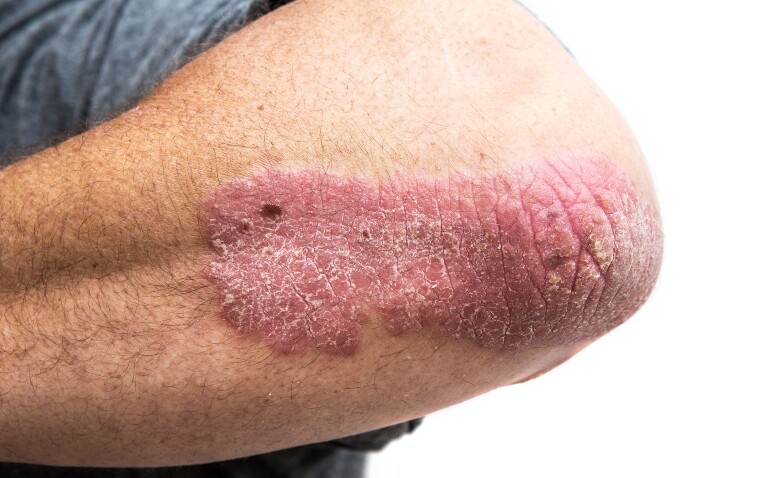Patients with psoriasis who show an early response to treatment with the biologics risankizumab or guselkumab are more likely to respond well to treatment over the long term, a new study has found.
The researchers examined the factors associated with an early treatment response, emphasising that effective long-term management of psoriasis is key to optimising personalised therapy.
The retrospective study included 102 psoriasis patients who received risankizumab (n=60) or guselkumab (n=42) continuously for at least one year.
Using the Psoriasis Area Severity Index (PASI), the researchers examined the proportion of patients who showed at least a 50% improvement in their psoriasis (PASI50) after three months – this was considered an early response. Early responders were examined at one year to determine if they were more likely to maintain a long-term response, as measured by PASI75.
Early responders and biologic treatment success in psoriasis
Patients with psoriasis who experienced an early response to biologic treatment within three months were more likely to achieve successful long-term treatment, indicating that early treatment response is a strong predictor of successful treatment outcomes at 12 months. Among early responders, 94.9% achieved a long-term treatment response.
These findings highlight the clinical importance of early response as a key factor in guiding and optimising personalised biologic treatment strategies in psoriasis, the researchers concluded.
They suggested further research should include an increased sample size and a detailed examination of treatment outcomes across variables such as obesity, gender and comorbidities.
Reference
Akdogan N et al. Early response is a strong predictor of the long-term response in psoriasis patients receiving risankizumab or guselkumab in the real-world: a retrospective analysis. Expert Rev Clin Pharmacol. 2025 Jun;18(6):417-423.










